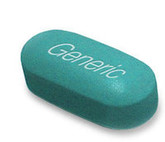Generics/Research
Generics combo non-inferior to treatment with Enbrel
A study carried out by researchers from the US Department of Veterans Affairs and the Canadian Institutes for Health Research has found that a combination of three generic drugs is non-inferior to treatment with Amgen’s blockbuster biological Enbrel (etanercept) [1].
Innovation in the generics industry
The decrease in innovation in the originator pharmaceutical industry is leading to an increase in innovation in the generics pharmaceutical industry, according to new research [1].
Quality of generics in South Africa
A study of the quality of generic medicines in South Africa has shown large differences in the perception and the actual quality of generics [1].
Cost savings from use of generic medicines in Ireland
Ireland has one of the lowest usages of generics in the EU. However, in order to try to address this, the country introduced a new bill – Health (Pricing and Supply of Medical Goods) Bill 2012 – on 16 September 2012. Authors Dunne et al. discuss how the proposed changes could affect health care in Ireland [1].
Use of generic medicines in Ireland
Ireland’s Department of Health and Children intends to introduce a system of reference pricing and generics substitution in Ireland, which will greatly increase the utilization of generics and generate significant cost savings, whilst at the same time, increasing the accessibility and affordability of essential medicines. Authors Dunne et al. discuss Ireland’s history with the use of generic medicines [1].
Changes in risperidone use in Austria after introduction of generics
Currently, many governments have introduced austerity reforms to control pharmaceutical expenditure. In Austria, efforts have been made to both increase the use and lower the prices of generics. The problem is that antidepressants are not like other drugs, such as cholesterol-reducing medicines, where switching from originators to generics is not seen as a problem. For antidepressants the patient’s treatment is often tailored to meet their specific needs and there is resistance to switch products in stable patients.
Use of venlafaxine in Austria after introduction of generics
Trying to reduce expenditure on medicine is a major driving force for reforms by many governments. This includes Austria, where measures have been introduced to lower generics prices and enhance their use. However, the situation for newer antidepressants and atypical antipsychotic medicines (AAPs) is different to proton pump inhibitors (PPIs) (anti-reflux), statins (cholesterol-reducing), and renin-angiotensin inhibitor (blood-pressure reducing) drugs. For antidepressants therapy, it is more often tailored to meet the patient’s needs and there is resistance to switch products in stable patients.
Patients’ knowledge and perceptions about generics in Australia
Most Australians know about generics but are not sure if they prefer brand-name or generic drugs, according to a survey carried out by Australian researchers and published in December 2012 in the Journal of Pharmacy Practice and Research [1].
Generics policies in Europe have room for improvement
In Europe, generics policies have not yet been implemented to their full extent, according to authors Vogler and Zimmerman, reporting on the 2011 Pharmaceutical Pricing and Reimbursement Information (PPRI) Conference [1, 2].
Conflict-of-interest policies reduce brand-name prescribing
Psychiatrists who are exposed to conflict-of-interest (COI) policies during their residency are less likely to prescribe brand-name antidepressants after graduation than those who train in residency programmes without such policies, according to a new study by researchers from the Perelman School of Medicine at the University of Pennsylvania, USA [1].













